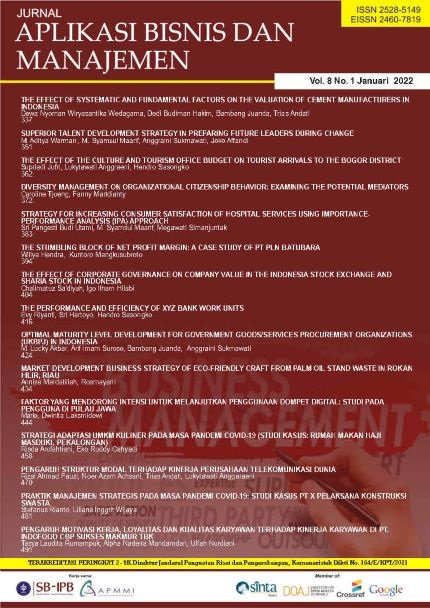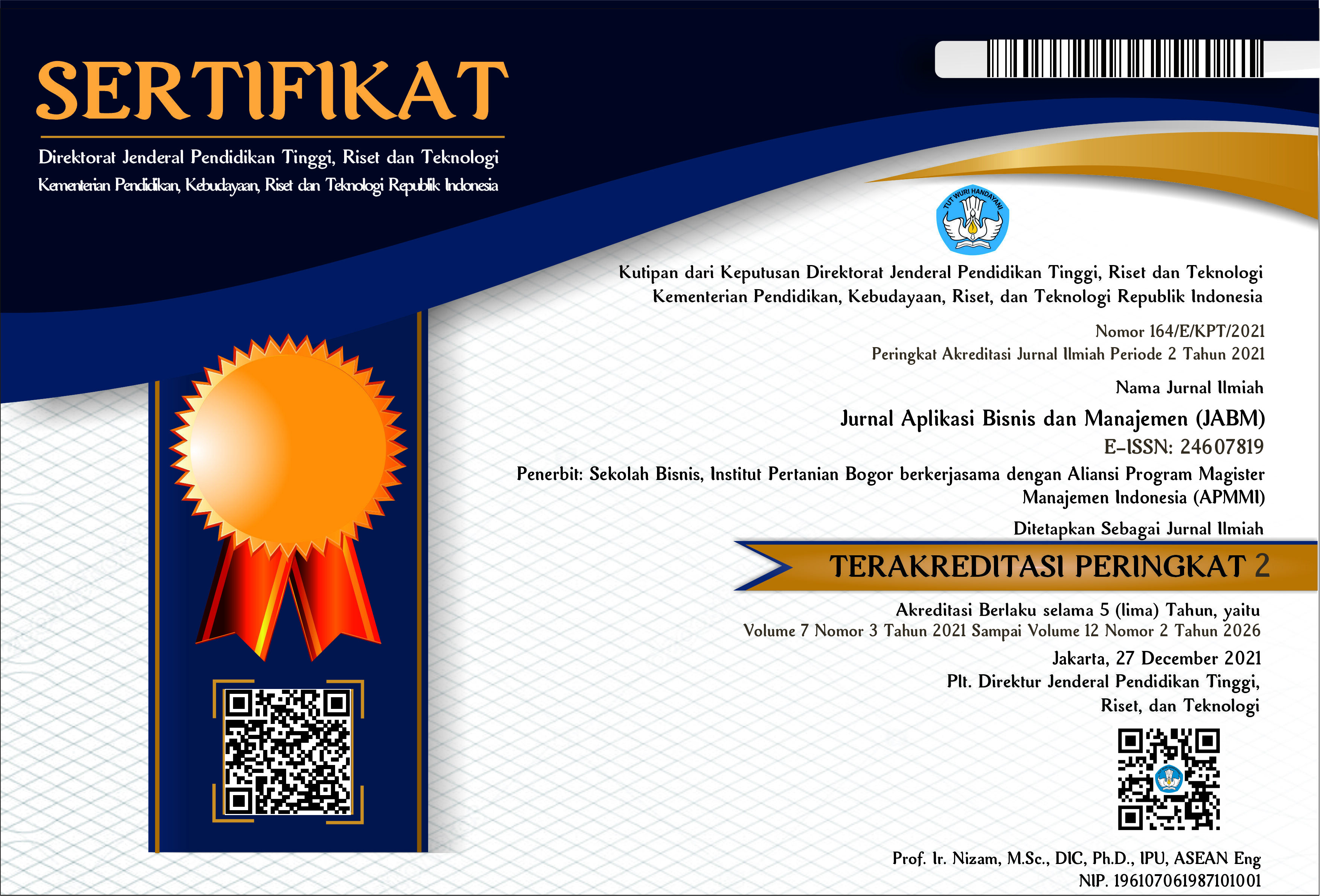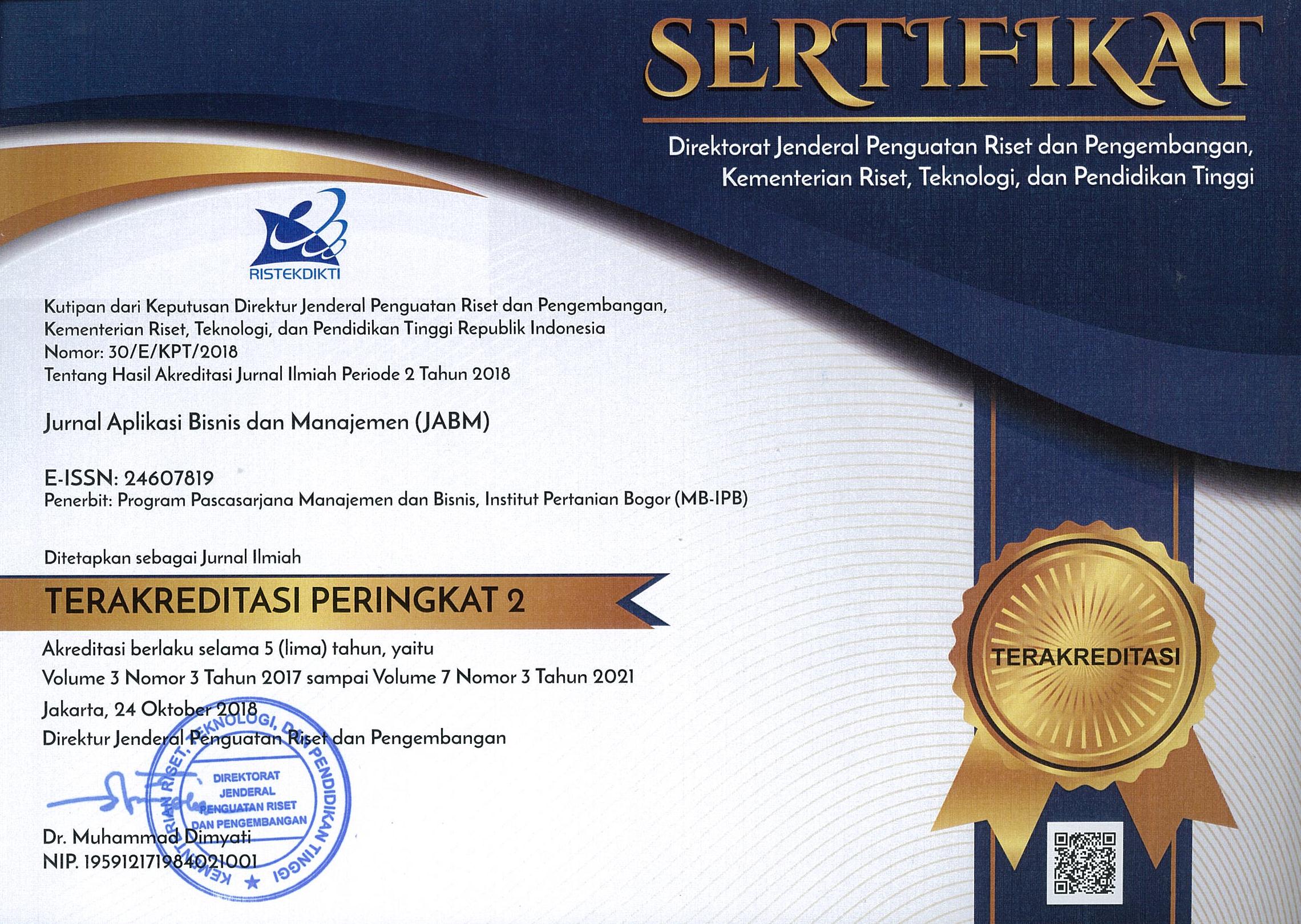Customer Satisfaction and Financial Performance of PT. Garuda Indonesia (Persero) Tbk.
Abstract
An increase in passengers does not always accompany the rise in Garuda Indonesia's customer satisfaction index (CSI). However, even though the number of passengers decreased, income on scheduled airline service showed an increasing trend. On the other hand, this condition has no implications for increasing the company's profitability. This phenomenon is important to study because it will likely decline if it refers to the projection of the number of aircraft passengers in the following year. This problem will, of course, impact the financial condition of the airline company, so it is necessary to do several alternative strategies to overcome it. This study aims to analyze trend of CSI on Garuda Indonesia’s, determine the effect of customer satisfaction (CSI) on Garuda Indonesia's financial performance and formulate an alternative approach to improve the company's financial performance in the future. The results show that customer satisfaction harms financial performance through return on assets (ROA). Firm size is negative to moderate the relationship between CSI and ROA. Meanwhile, sales growth cannot moderate the relationship between CSI and ROA. An alternative strategy that the company can take to improve its financial performance is making efficient operating expenses, including operational flight expenses, ticket expenses, sales, promotions, and passenger service expenses. In addition, the company can also maximize the company's loyalty program.
Keywords: customer satisfaction, financial performance, return on assets, airline industry, Garuda Indonesia








